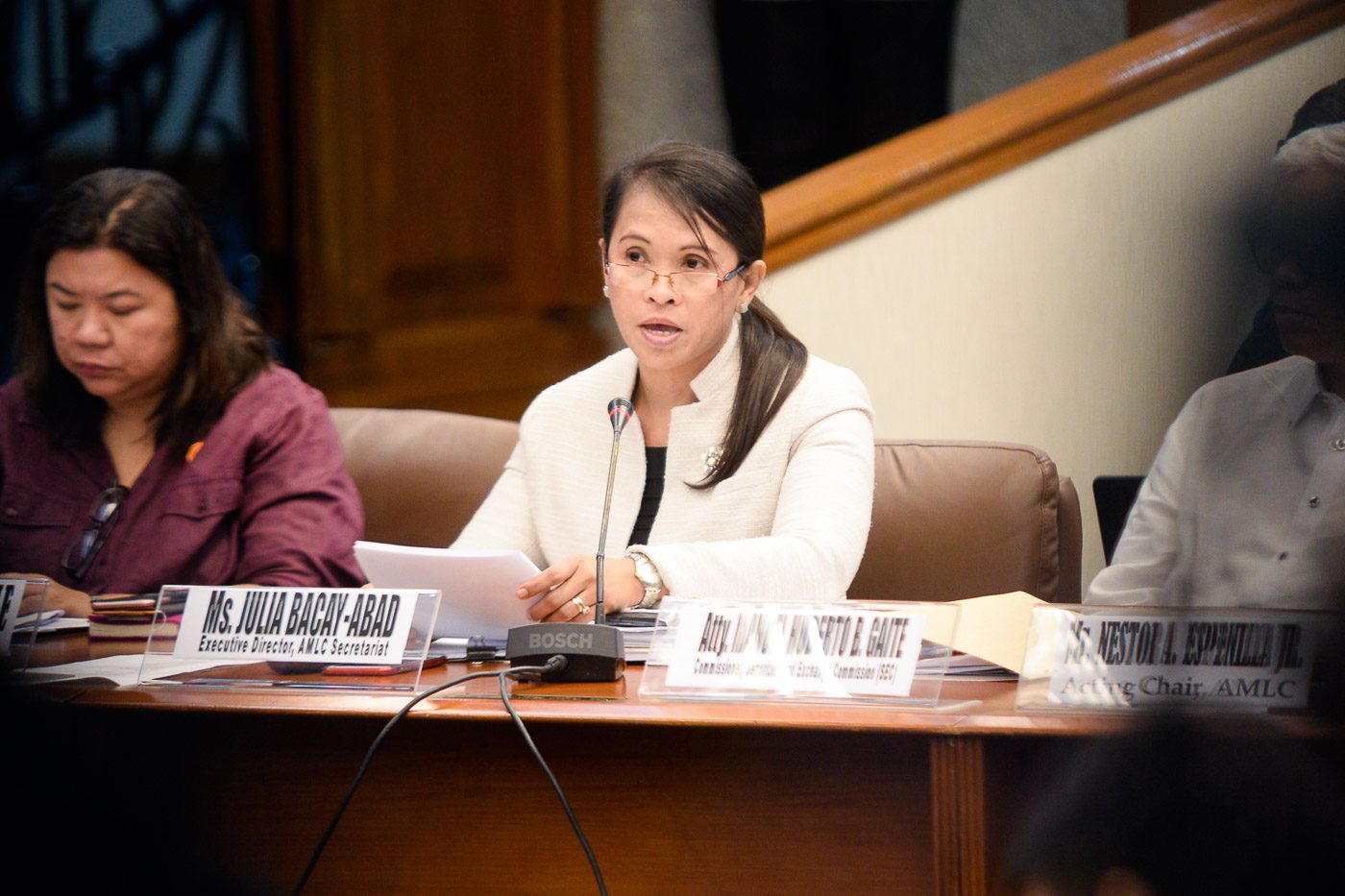SUMMARY
This is AI generated summarization, which may have errors. For context, always refer to the full article.

MANILA, Philippines — With limited power, it took the Anti-Money Laundering Council (AMLC) 18 days to order Rizal Commercial Banking Corporation (RCBC) to freeze all accounts involved in the $81-million Bangladesh Bank fund heist.
The AMLC started its probe into the mysterious electronic theft on February 12, but only got a court order to freeze account on March 1. (READ: How Bangladesh Bank dirty money easily got into PH)
This was past Bangladesh Bank’s request for a “stop payment order” to RCBC on February 8, asking the local bank to refund the stolen funds or freeze the funds if these were not transferred yet.
But for AMLC executive director Julia Bacay-Abad, the body immediately acted on the case after the Bangladesh Bank sought the help of Bangko Sentral ng Pilipinas (BSP) Governor Amando Tetangco Jr last February 11.
According to her, AMLC started looking into the transactions the following day and required the involved banks and financial institutions to submit the documents pertaining to the accounts involved.
She said AMLC got in touch with the banks involved in the alleged money laundering anomaly last February 12, afterwhich the concerned financial institutions submitted the suspicious transaction report.
Abad said officials of the Bangladesh Bank went to AMLC last February 16 to submit documents on the $81 million stolen from their account in the Federal Reserve Bank of New York.
Too late for freeze order
After completing its initial investigation, the agency’s financial intelligence unit (FIU) submitted its recommendations to the AMLC last February 22.
Abad said AMLC then forwarded the matter to the Office of the Solicitor General (OSG), who has to approve all the pleadings of the Republic of the Philippines.
Abad said AMLC received the reply from the OSG for the petition to file a freeze order before the Court of Appeals (CA) on 3:30 pm of February 29 and failed to meet the 4 pm deadline of the appellate court.
The petition, she said, was filed on February 29 and the CA issued the freeze order on the accounts involved on March 1.
However, the $81 million deposited in the 4 alleged fake accounts were withdrawn as early as February 9.
Too many to handle
According to her, AMLC receives millions of covered transaction reports – involving P500,000 and above – within one banking day.
Abad also said she received suspicious transaction reports involving accounts with no underlying legal or trade obligation, purpose or economic justification; client not properly identified, or amount involved is not commensurate with the business or financial capacity of the client.
AMLC received over 36 million covered transaction reports as well as 146,308 suspicious transaction reports in 2015 alone.
“We are receiving millions of transaction reports and the AMLC cannot look into all those transactions,” she said.
Abad explained the Information Management and Analysis Group of AMLC only has 28 personnel and only 9 are financial analysts.
Revisions for AMLA
To expedite the process of detecting suspicious transactions, Abad said there is a need to further amend the AMLA to put more teeth into the powers of the AMLC.
Since the law was passed in 2001, it has been amended thrice through RA 9194 in 2003, RA 10167 in 2012, and RA 10365 in 2013.
Abad said the amendments should cover the inclusion of casinos and real estate brokers in the list of covered institutions since the money trail in the alleged bank heist ended with the casinos.
Likewise, she added legislators should also amend the RA 1405 or the Bank Secrecy Law to allow AMLC, the Bureau of Internal Revenue (BIR), the Securities and Exchange Commission (SEC), and other agencies to look into suspicious bank accounts. (READ: TIMELINE: Tracing the $81-million stolen fund from Bangladesh Bank)
AMLC is also pushing for the inclusion of tax evasion as a predicate crime in anti-money laundering.
Abad said AMLC has filed 365 anti-money laundering cases before the Department of Justice, Ombudsman, Sandiganbayan, and regular courts.
Of the total number of cases filed, 250 were resolved while 115 are still pending since AMLA was passed in 2001.
The agency has forfeited P4.83 billion including P1.5 billion that were returned to victims or investors as well as P2.58 billion with pending civil forfeiture cases. – Rappler.com
Add a comment
How does this make you feel?





There are no comments yet. Add your comment to start the conversation.